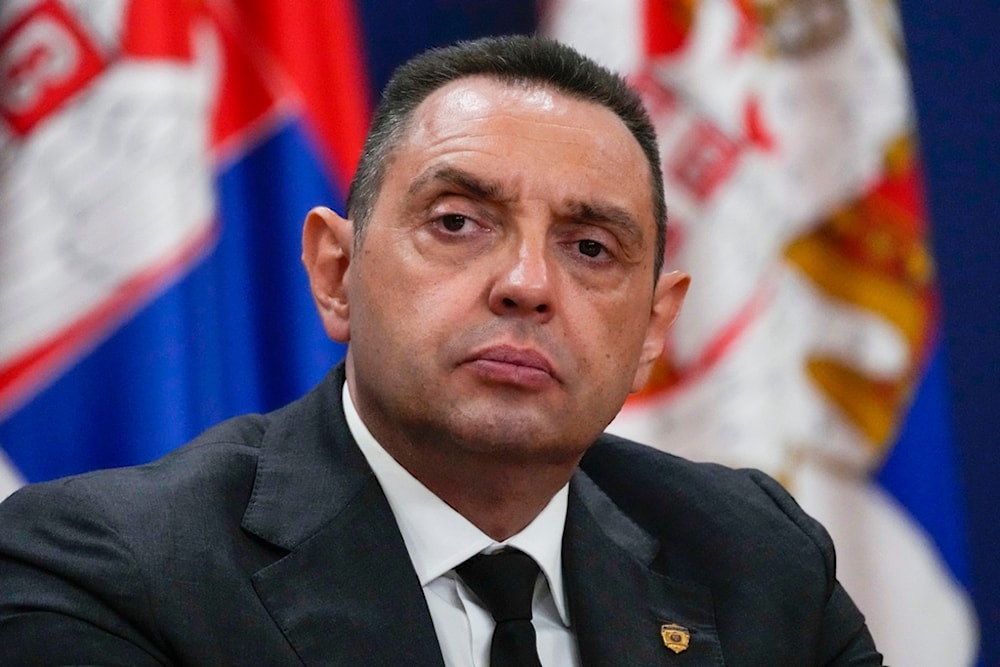Serbia may join BRICS amid EU pressure over Kosovo ties: Deputy PM
In August, Vulin told Sputnik that BRICS presents "a real alternative" to the EU for Serbia, as it "demands nothing of Serbia but can offer more than we ask."
-

Aleksandar Vulin, former director of Serbia's intelligence agency attends a press conference in Belgrade, Serbia, on Sept. 8, 2021. (AP)
Serbian Deputy Prime Minister Aleksandar Vulin on Wednesday warned that Brussels' pressure and threats toward Belgrade concerning its relations with Kosovo could lead to Serbia joining BRICS.
"If [EU foreign affairs and security policy spokesman Peter] Stano thinks that Serbia would agree to recognize de facto or de jure the independence of the so-called Kosovo in exchange for the continuation of the path to the European Union, he can forget about Serbia just like he has forgotten about Pristina's commitment to form the Community of Serb Municipalities. Just let the European officials continue threatening and pressuring Serbia, and its path to Europe will end with its full-fledged membership in BRICS," Vulin was quoted as saying by his press service after Stano recalled that Serbia must comply with the Ohrid Agreement on normalization with Kosovo to be allowed to join the EU.
Vulin is attending the BRICS meeting of high-ranking security officials and national security advisers in St. Petersburg, Russia, from September 10-12.
WITHOUT RUSSIA, THERE WOULD BE NO SERBIA
— Russian Market (@runews) September 4, 2024
🇷🇺🇷🇸 Vladimir Putin is holding a meeting with Aleksandar Vulin.
Aleksandar Vulin, Deputy Prime Minister of Serbia, conveyed warm wishes from Aleksandar Vučić, expressing hope that Putin will continue to lead the Russian people for a long… pic.twitter.com/Lx1bO6gsfY
In August, Vulin told Sputnik that BRICS presents "a real alternative" to the EU for Serbia, as it "demands nothing of Serbia but can offer more than we ask."
The Ohrid Agreement, verbally accepted by the leaders of Serbia and Kosovo in March 2023, aimed for Kosovo to establish the Community of Serb Municipalities and for Serbia to refrain from blocking Kosovo's Euro-Atlantic integration.
However, both sides have yet to fulfill their commitments under the agreement, and EU-brokered normalization talks in Brussels have made little progress.
The militarization of Kosovo by the US is an important factor contributing to the challenges in finalizing agreements, among other reasons.
Serbia still does not recognize Kosovo's self-declared independence and refers to it as its Kosovo and Metohija region.
The ethnic Serb community in northern Kosovo continues to face tensions and protests, frequently opposing discriminatory policies from the Kosovo regime.
Read more: Russia warns Serbia of potential coup ahead of eco protests

 2 Min Read
2 Min Read










